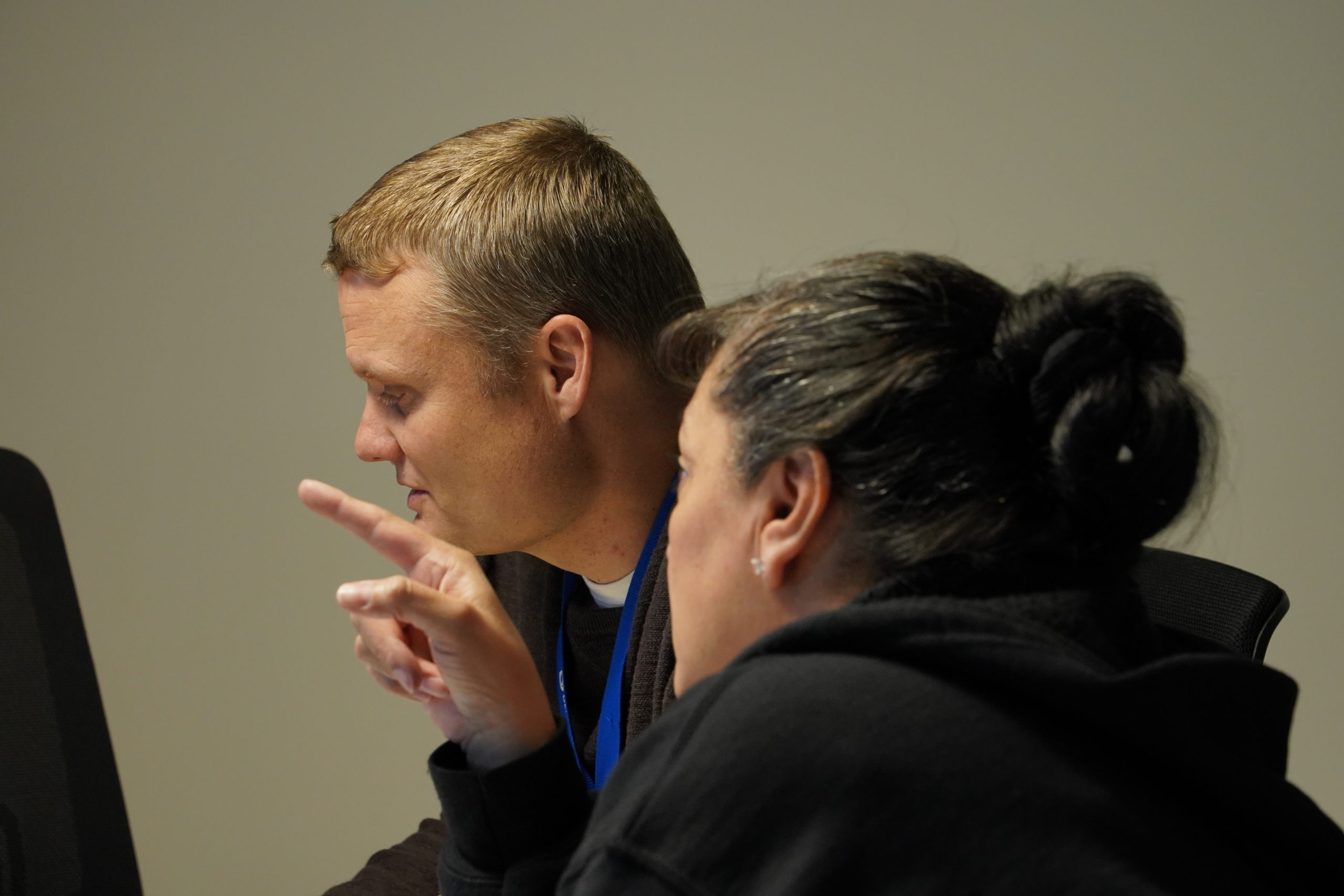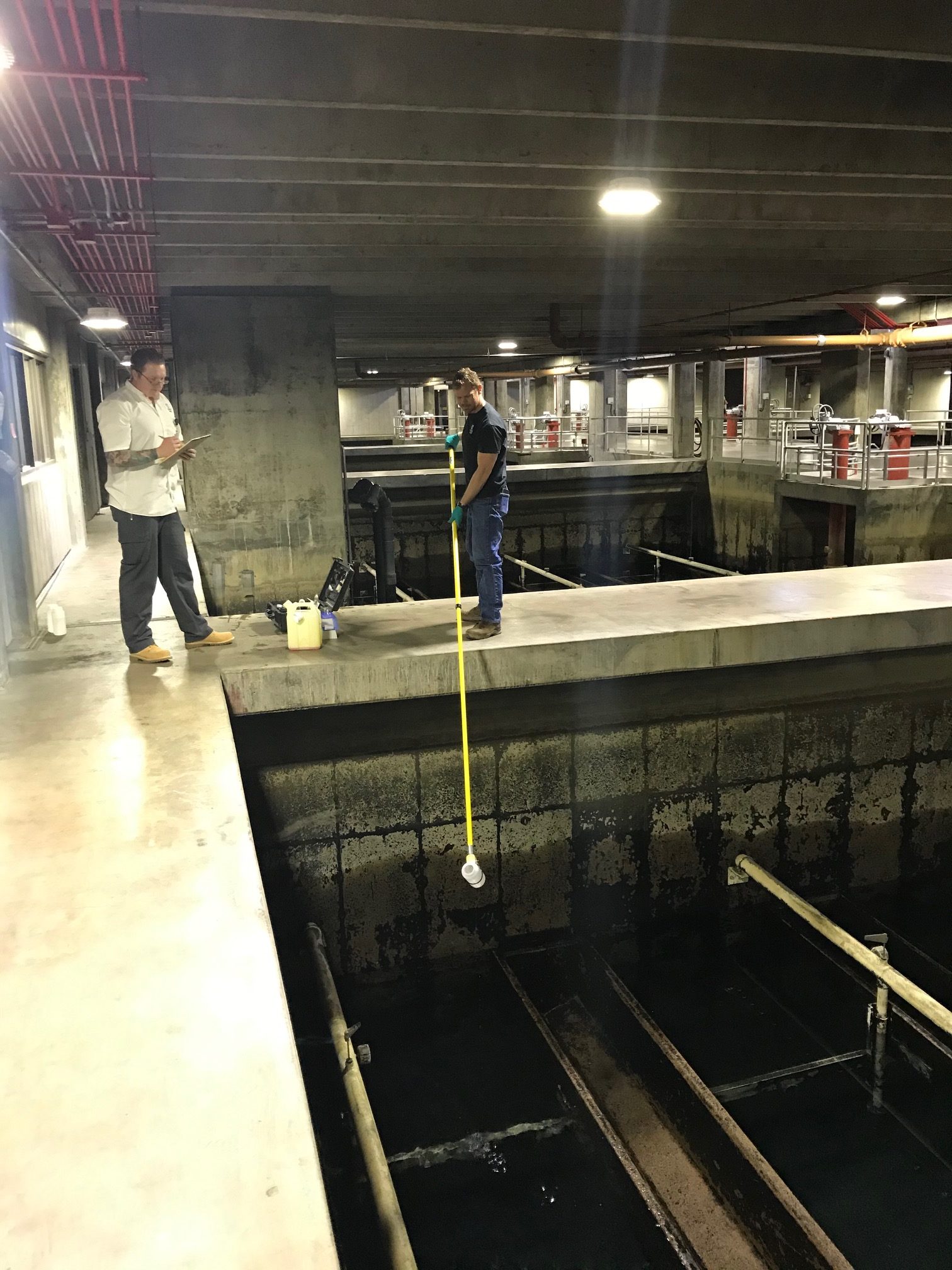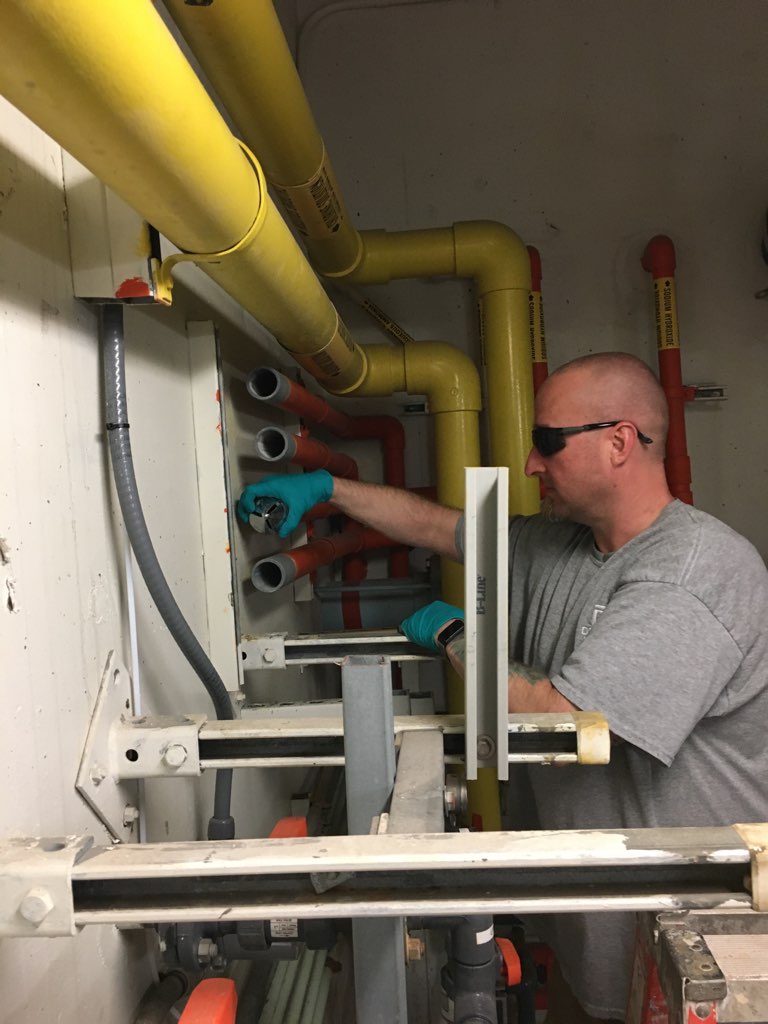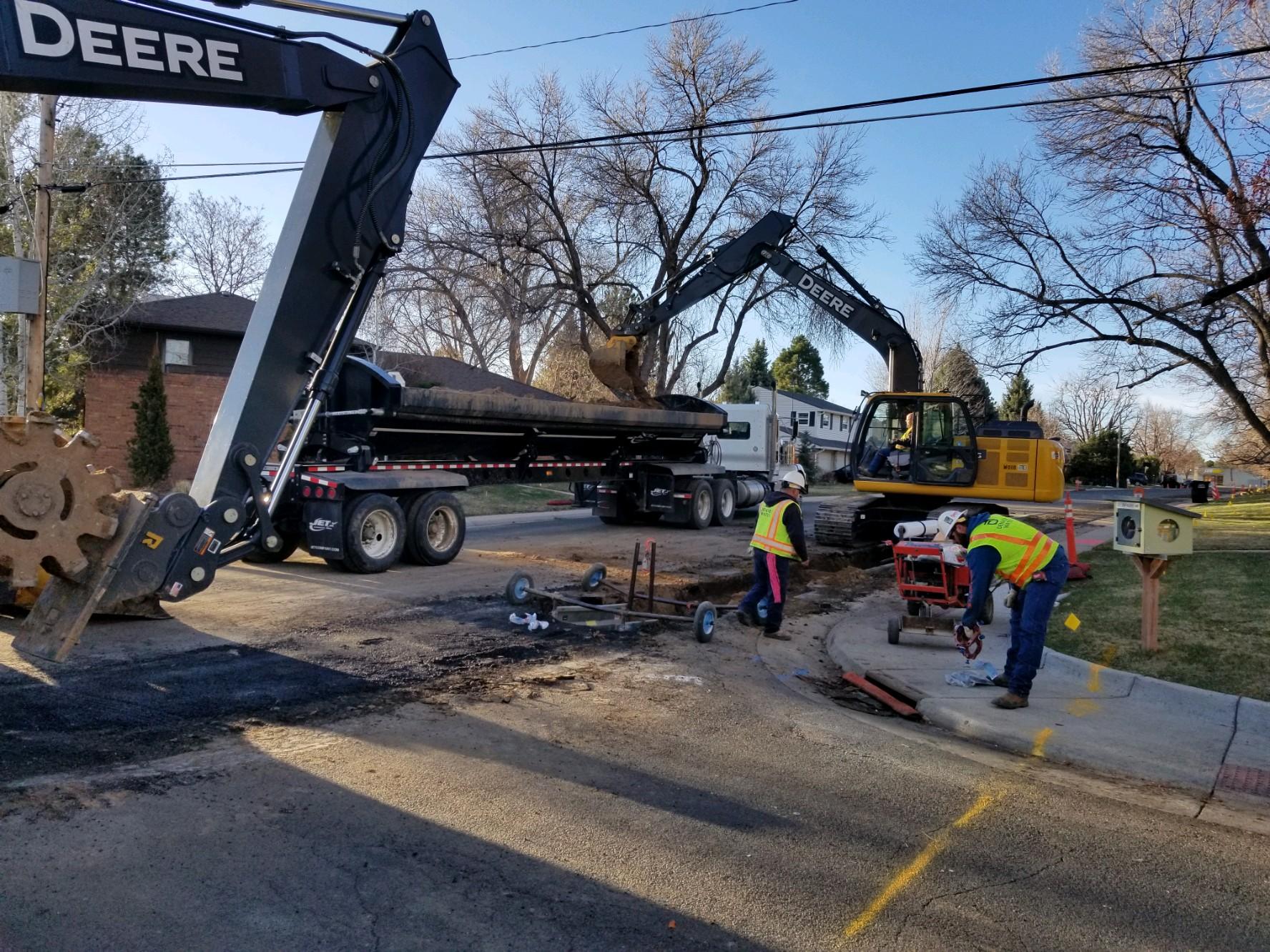
Keeping the water flowing through COVID-19
The COVID-19 pandemic has forced people around the world to make changes in how they live and work.
At Denver Water, these changes carry the added weight of making sure clean, safe water still flows to 1.5 million people in Denver and several surrounding suburbs.
“The impact of COVID-19 is unprecedented for all of us at Denver Water,” said Jim Lochhead, CEO/Manager of Denver Water. “Our top priority is to keep employees, contractors and community members safe and healthy, allowing us to continue serving water to our customers.”
Denver Water has been closely following the situation around COVID-19 for months. The utility on March 16 began having employees work from home, where possible, to reduce potential exposure to essential employees and those whose jobs cannot be done remotely.
The city of Denver’s stay-home order took effect on March 24. A similar Colorado-wide order took effect March 26.
At Denver Water, the utility implemented a variety of safety protocols for employees whose jobs cannot be done remotely, including those who work at its water treatment plants and crews who work in the community.
The utility’s employees are teleworking, augmenting schedules and working from alternative work sites. Cleaning and disinfecting protocols have been stepped up at facilities to protect workers.
Positions where employees must report to a specific site include dam operators, water treatment plant operators, water quality specialists, water load control operators and repair crews.
“There are some jobs at Denver Water that simply cannot be done from home,” said Jason Taussig, director of emergency management, safety and security at Denver Water. “By spreading out our workers, we are able to ensure good social distancing between personnel to keep everyone safe.”
Emergency Management
Denver Water’s emergency management team started tracking the movement of COVID-19 and local community responses to the virus in December 2019. The utility activated its emergency operations center in early March.
“We follow Federal Emergency Management Agency and state guidelines for emergency planning and response,” said Becky Franco, Denver Water’s emergency management manager. “We’re putting this training into practice during the current crisis and have activated a virtual emergency operations center.”
Denver Water’s emergency operations protocols include using FEMA’s National Incident Management System, which helps an organization streamline communication, planning, logistics and administrative tasks during emergencies.
Information technology and teleworking
One of the biggest challenges to Denver Water’s operations as the COVID-19 crisis escalated was the effort to disperse employees from their regular work sites to the extent possible. This put the utilities’ Information Technology division to the test.
On March 12, Denver Water’s IT team started working on a plan to have a majority of the utility’s more than 1,000 employees work from home. The plan was implemented March 16.
“We were able to pull together a plan of action and execute quickly, thanks to existing IT infrastructure and an excellent team,” said Virginia Roberts, information technology director at Denver Water. “The technology division eagerly embraced the challenge to keep Denver Water operations running smoothly and we’re very proud of their work.”
The plan involved providing laptops to those who didn’t have them and working on network infrastructure to make sure it could handle the load of teleworking.
The IT cybersecurity team has focused on keeping the system safe from potential cyberthreats, and the organization’s IT Helpdesk has fielded hundreds of calls to help employees adapt to their new workstations.
“We’ve had to work from home for a day or two in the past, but working at home full time has been an interesting transition for many of our employees,” said Mark Thomas, director of IT operational technology teams. “Our teams continue to amaze me on how flexible they are and how willing they are to help each other and those across the organization who are now working remotely.”
Water treatment and testing
Just as having emergency management and IT systems running smoothly is critical to Denver Water’s ability to deliver safe and reliable drinking water in times of emergencies, so is ensuring the utility’s treatment plants continue to be up and running.
Denver Water has three drinking water treatment plants — Foothills, Marston and Moffat — where water from mountain reservoirs is cleaned to drinking water standards.
Treatment plant operators continue to report to these facilities but are minimizing contact with each other and using social distancing guidelines when more than one person is needed for a specific task. Nonessential work has been delayed, and staff members who don’t need to be at the plant are working from home.
“The water Denver Water sends to customers is safe to drink and there is no threat of COVID-19 in the water system,” said Nicole Poncelet-Johnson, director of water quality and treatment at Denver Water. “We follow all drinking water regulations established by state and federal health officials to stop waterborne pathogens like COVID-19 from contaminating drinking water.”
Poncelet-Johnson says treatment plant staff closely monitor all virus disinfection procedures at the plant and review the results daily. Each plant also has online instrumentation that immediately alerts workers to any changes in water quality.
“We train for emergency situations to maintain operations and now we’re putting that training into action,” Poncelet-Johnson said. “We focus on cross-training our technicians at different plants, so our team is able to support and back each other up.”
Denver Water’s Moffat Treatment Plant in Lakewood is not treating water due to its annual shut down for maintenance. This is when technicians do important updates and repair work before the beginning of the summer watering season, when customers start using more water outside.
“During a shutdown, we’re very busy, because we have a limited timeframe to do our major maintenance projects,” said Ezzie Sauter, Denver Water’s North Treatment Plant System operations supervisor. “Due to COVID-19, we’ve had to make adjustments to get the work done.”
Sauter said that in the past, three to four people may have been required to work on maintenance projects. Now, crews are doing the same tasks with one or two people to minimize interaction.
“It’s challenging, but we have a great team, and everyone is finding solutions to get jobs done,” Sauter said.
Denver Water also has a team of water quality technicians who take 35,000 samples and conduct 70,000 water quality tests annually throughout the collection, treatment and distribution system.
“All sampling and testing required by the Colorado Department of Public Health and Environment is continuing during the COVID-19 situation,” said Alfonso Gonzales, Denver Water’s water quality laboratory manager.
Changes to construction projects
Denver Water’s work has been classified as an essential service in the state, which means employees and contractors are allowed to work on projects during city and state stay-at-home orders.
This includes responding to water main leaks and breaks, as well as working on important infrastructure upgrades.
“The public will continue to see Denver Water crews and our contractors working in the community during the crisis,” Taussig said. “We’re taking added precautions to ensure homes, hospitals, first responders and others have the water they need now and in the future.”
Denver Water has stopped all pre-scheduled construction work that involves shutting off water to more than one residence until the shelter-in-place orders are lifted. When the work involves shutting off water to one customer, like a lead service line replacement, Denver Water will only proceed with consent from the property owner.
“While critical work will continue during the crisis, Denver Water made changes to its construction project schedule to lessen the impact of water outages on customers,” said Tom Roode, chief operations and maintenance officer at Denver Water. “Work that requires multiple customers to be without water for several hours has been temporarily stopped, including scheduled replacements of water mains, valves and fire hydrants.”
The work stoppage will be evaluated as conditions surrounding the coronavirus continue to evolve.
Capital improvement projects
Denver Water’s 5-year, $1.3 billion capital improvement plan has around 100 major projects scheduled through 2024.
These projects include work ranging from critical distribution system upgrades to aging water pipes and underground vaults, as well as building a new water treatment plant north of Golden and a large pump station in southeast Denver.
Denver Water is delaying the start of all new capital improvement projects, while projects currently underway will continue as long as they don’t impact customers’ water service.
“We have a long history of fixing things when they break, investing in our infrastructure and building redundancy so we’re prepared for emergencies,” said Bob Mahoney, chief engineering officer at Denver Water. “Our crews and the contractors we work with are all taking precautions to maintain safe distancing on the job.”
Looking ahead
Denver Water’s leadership team continues to monitor the evolving situation around COVID-19 and will adjust as needed to maintain a reliable and safe drinking water supply.
“We’ve successfully provided water to our customers during droughts, floods, wildfires and other emergencies, and we’ll continue to do so under the new challenge of COVID-19,” Lochhead said. “We want the public to know that they can trust Denver Water and that we’re doing everything possible to keep our employees and community safe while continuing to deliver safe, clean and reliable drinking water.”








